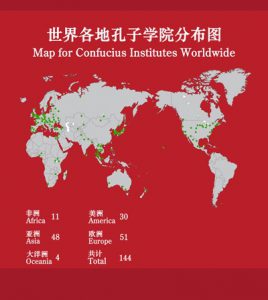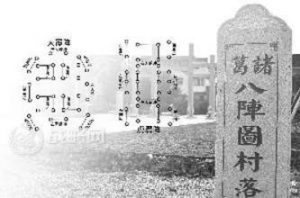UGEA2236C Introduction to Classical History Books
Semester 2 (2022-2023)
Lecture TimeTuesday, 10:30 - 12:15
VenueLT4, Lee Shau Kee Building (LSK LT4)
LanguageCantonese
Lecturer SIU Kam Wah (39437274 / kamwsiu@cuhk.edu.hk)
This course introduces four classical history books of ancient China: Records of the Grand Historian (Shiji), Standard History of the Han (Hanshu), Records of the Three Kingdoms (Sanguozhi) and Comprehensive Mirror for Aid in Government (Zizhi tongjian). It particularly analyses the historical contexts, purposes, genres, compilations, historical thoughts of these history books and the characteristics of the Chinese culture shown in them. Students are given close guidance to study the typical writings in these historical books to comprehend, analyse and appraise the essence of traditional Chinese historiography as well as the evolution and characteristics of history, politics, economics and society in the Chinese cultural heritage from multi-disciplinary and comparative perspectives, and reflect on the intellectual and cultural insights of these traditions into the contemporary society and life.
Learning Outcomes
After completing this course, students are expected to be able to identify, comprehend and critically appraise through intellectual dialogue:
- the essential features of the traditional Chinese historiography, which is an important part of the Chinese culture;
- evolution and characteristics of these aspects of the Chinese cultural heritage in the historical contexts;
- intellectual and cultural insights of these traditional aspects into the modern society and life as well as their close and meaningful relevance;
Students are also expected to:
- develop a broad historical perspective for reflecting on perennial issues and concern for various situations of human existence;
- broaden the intellectual perspective for mastering the important ideological trends of the contemporary world and understanding issues related to their life and society, and addressing unfamiliar problems of today with the application of historical wisdom; and
- master the ability to analyse and compare historical documents in depth and articulate the related history and its significance in writing.
Recent Interactive Teaching through TV/Radio/News Media Interviews/Museum Tour




References Used in the Course
《史記》之天人之際觀

《史記》之開放經濟觀

《漢書》之獨尊儒學觀

《漢書》之五德自然觀

《三國志》之諸葛亮策略


《三國志》之醫患互信觀

《三國志》與《資治通鑑》之戰略智慧——赤壁之戰

《資治通鑑》之危機管理與國防策略

1. Introduction to the Four Classical History Books (10 Jan)
A. In Dialogue with Records of the Grand Historian (Shiji)
2. Historical Conception and Political Thoughts in Shiji (17 Jan)
3. Economic and Social Thoughts in Shiji (31 Jan)
4. Emperors, Empresses, Courtiers and Heroes: Analysis of Exemplary Persons in Shiji (7 Feb)
B. In Dialogue with Standard History of the Han (Hanshu)
5. Academic Thoughts and Legal Principles in Hanshu (14 Feb)
6. Order of Nature and Humanistic Spirit in Hanshu (21 Feb)
7. A Comparative Analysis of Biographies in Shiji and Hanshu: Generals Xiang Yu and Li Guang (28 Feb)
C. In Dialogue with Records of the Three Kingdoms (Sanguozhi)
8. Strategic Thoughts and Conciliation Strategies in Sanguozhi (14 Mar)
9. Worlds of Talented Men and Women in Sanguozhi (21 Mar)
10. Thoughts of Reclusion, Medicine, Physiognomy and Divination in Sanguozhi (28 Mar)
D. In Dialogue with Comprehensive Mirror for Aid in Government (Zizhitongjian)
11. Concepts of History and Nation in Zizhitongjian (4 Apr)
12. Crisis Management and National Defence Strategies in Zizhitongjian(11 Apr)
13. A Comparative Analysis of a Historical Event in Sanguozhi and Zizhitongjian: Battle of Red Cliff (18 Apr)
Take-home Essay Examination 65%
Blackboard Multiple Choice Test 25%
Lecture Participation 10%
Grade Descriptors
Grade A
Outstanding performance on all learning outcomes.
Grade A-
Generally outstanding performance on all (or almost all) learning outcomes.
Grade B
Substantial performance on all learning outcomes, OR high performance on some learning outcomes which compensates for less satisfactory performance on others, resulting in overall substantial performance.
Grade C
Satisfactory performance on the majority of learning outcomes, possibly with a few weaknesses.
Grade D
Barely satisfactory performance on a number of learning outcomes.
Grade F
Unsatisfactory performance on a number of learning outcomes, OR failure to meet specified assessment requirements.
No tutorial
- 司馬遷撰,裴駰集解,司馬貞索隱,張守節正義:《史記》。北京:中華書局,1959。
- 班固撰,顔師古注:《漢書》。北京:中華書局,1962。
- 陳壽撰,裴松之注:《三國志》。北京:中華書局,1959。
- 司馬光編著,胡三省音注:《資治通鑑》。北京:中華書局,1956。
- 杜維運:《中國史學史》第一冊。臺北巿:三民書局,1993。
- 杜維運:《中國史學史》第二冊。臺北巿:三民書局,1998。
- 杜維運:《中國史學史》第三冊。臺北巿:三民書局,2004。
Attention is drawn to University policy and regulations on honesty in academic work, and to the disciplinary guidelines and procedures applicable to breaches of such policy and regulations. Details may be found at http://www.cuhk.edu.hk/policy/academichonesty/.
With each assignment, students will be required to submit a signed declaration that they are aware of these policies, regulations, guidelines and procedures.
- In the case of group projects, all members of the group should be asked to sign the declaration, each of whom is responsible and liable to disciplinary actions, irrespective of whether he/she has signed the declaration and whether he/she has contributed, directly or indirectly, to the problematic contents.
- For assignments in the form of a computer-generated document that is principally text-based and submitted via VeriGuide, the statement, in the form of a receipt, will be issued by the system upon students’ uploading of the soft copy of the assignment.
Assignments without the properly signed declaration will not be graded by teachers.
Only the final version of the assignment should be submitted via VeriGuide.
The submission of a piece of work, or a part of a piece of work, for more than one purpose (e.g. to satisfy the requirements in two different courses) without declaration to this effect shall be regarded as having committed undeclared multiple submissions. It is common and acceptable to reuse a turn of phrase or a sentence or two from one’s own work; but wholesale reuse is problematic. In any case, agreement from the course teacher(s) concerned should be obtained prior to the submission of the piece of work.